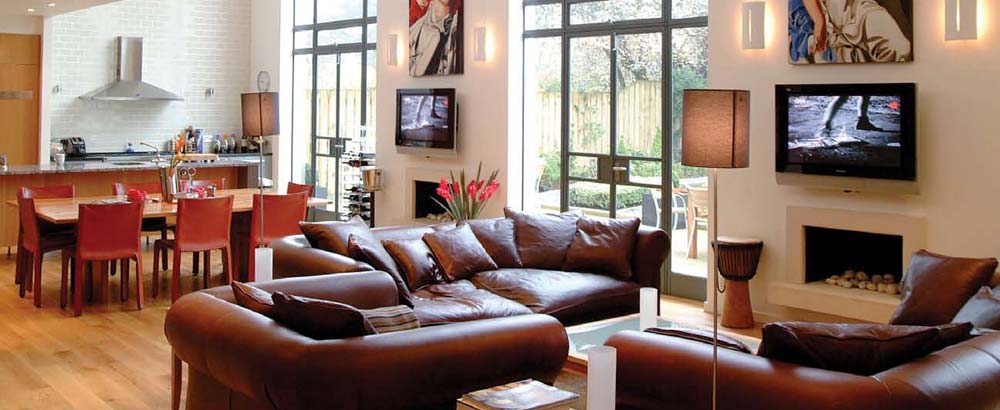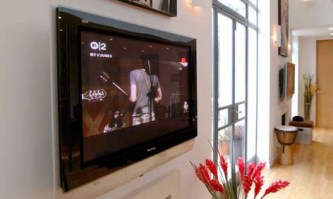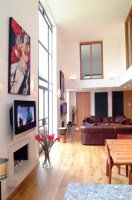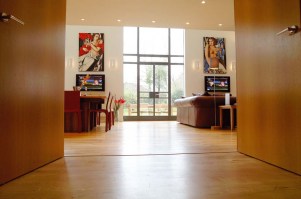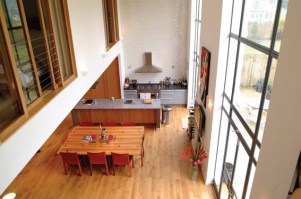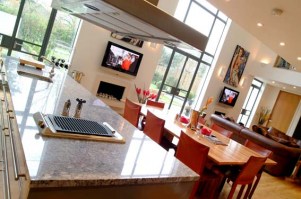Harrogate House - UK
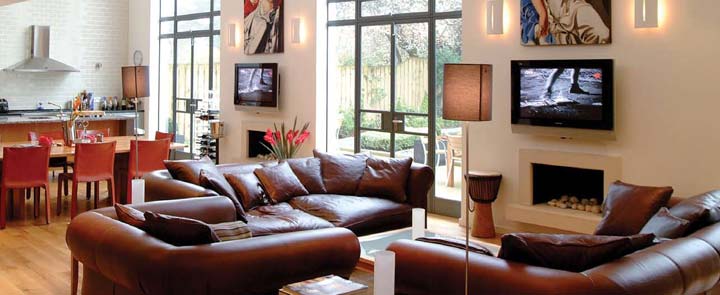
Harrogate house
| Fiche technique |
One of the most desirable houses in the UK, this art deco dream on the outskirts of Harrogate is visually stunning.
The interior design is consciously contemporary- simple, no fuss and boasting large minimalist open plan living spaces. Although the interior incorporates the very latest audio visual, communication and entertainment systems, the visual disruption from this state of the art technology has been minimised.
Initially however there was one problem:-
The centre piece of the house is the main living area. Two full height, two storey windows provide magnificent views of the garden and let light flood in to this large roomy space.
But for the AV suite it meant there where very real physical restrictions on where loudspeakers could be put. The only available space to place the left and right loudspeakers was at the extremes of the room in the very small area immediately adjacent to the side walls. Similarly the surround channels were restricted to the half-height ceiling at the back of the room.
The audio set-up was a 5.1 surround sound configuration that worked alongside two centrally located plasma screens. Conventional In-wall speakers had been set up but the room, and the location restrictions, were too much for them creating an unacceptably poor performance.
Amina to the rescue
The answer? Amina Invisible Loudspeakers. Positioning these Loudspeakers in the same space and location produced an outstanding result with an audio quality that was astonishing. The entire room is now filled with high definition sound with no more steep sound pressure gradients. Not only this but all visual signs of the sound source have disappeared!
Amina Invisible Loudspeakers have at their core the revolutionary “diffuse source” vibrating soundboard technology. It mimics the way a traditional acoustic instrument works, such as a cello or guitar – the strings create vibrations in the instrument body and for the Amina speakers exciters create tiny vibrations in the front panel which in turn excites air particles in the room creating the high clarity sound that is heard.
The vibrations produced are tiny, so small they cannot be seen but you can feel them if you touch the surface. This creates a diffuse source of (phase unrelated) sound energy. The sound propagates in a similar way to musical instruments and radiates hemi-spherically from the wall thus enabling the listener to hear the output from each speaker wherever they are in the room, providing a much larger sweet spot than traditional pistonic loud speakers, making the ideal solution for such a large open plan area.


